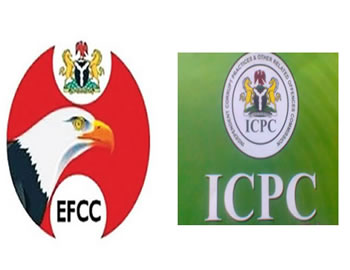Since the creation of modern public administration in the country, there have been cases of official misuse of funds and resources. The discovery of oil, which made the country to abandon agriculture which employed more than 85 per cent of the population in the 60s, led to the increase in corrupt practises among government officials.
The flagrant graft that exists in Nigeria could be blamed on the ostentatious lifestyles of people in positions of authority and the collapsed value system. A situation where corrupt individuals are celebrated by the society portends grave danger for the country.
The current administration has been bold in attacking corruption head-on by strengthening the anti-graft agencies; the Economic and Financial Crimes Commission (EFCC) and Independent Corrupt Practices and Other Related Offences Commission (ICPC). The whistle-blowing system and the Treasury Single Account (TSA) are also meant to tackle corruption.
Wealthy elite may resort to sleaze in order to gain power and protect their interests. However, corruption is a problem that has to be rooted out.
There are possible solutions to corruption. There must be rule of law which promotes checks and balances among the arms of government. Agencies that fight corruption should be closely monitored while records of transactions and payments must be kept.
People should be allowed to choose their leaders while voters must be allowed to use their votes to remove corrupt leaders from office. It is also important that salaries and entitlements are paid on time to discourage workers from stealing government money.
If the foregoing listed points are properly looked into, I think the present administration would find a solution to corruption in the country and take it to a greater height.
- Adebisi Akolade
Kwara State Polytechnics, Ilorin.






